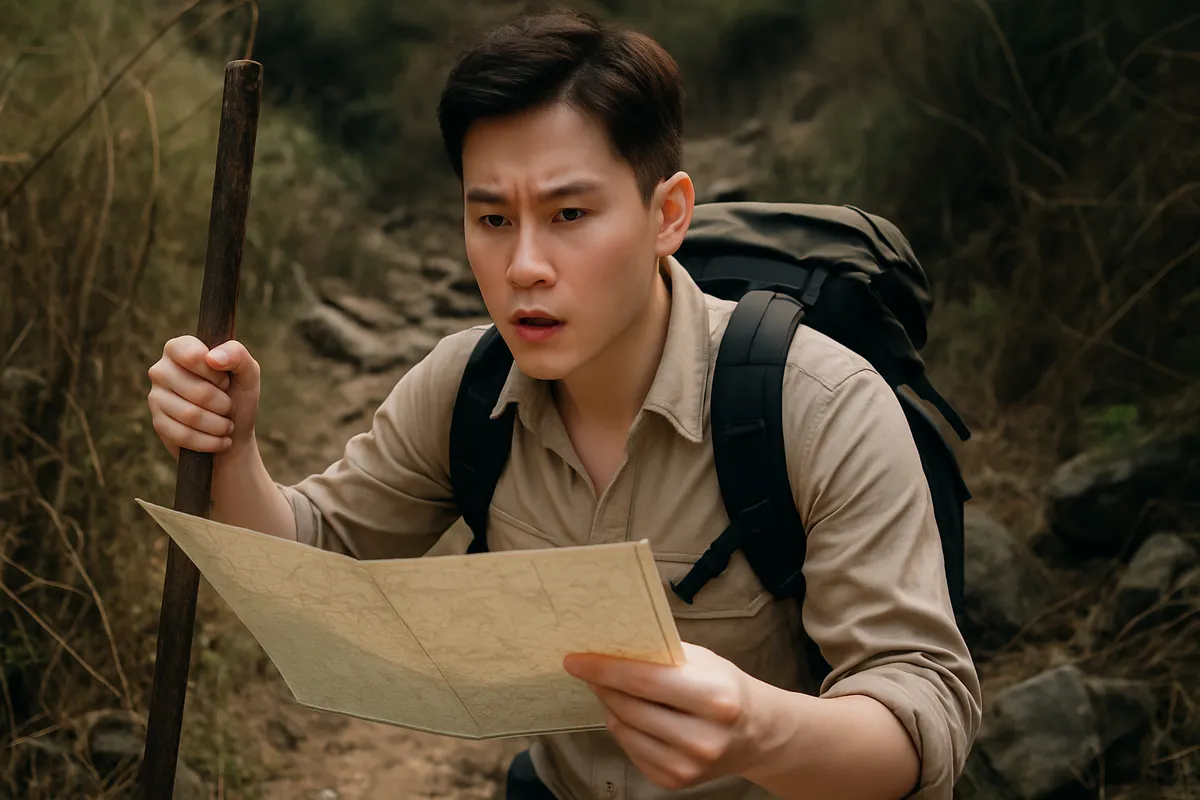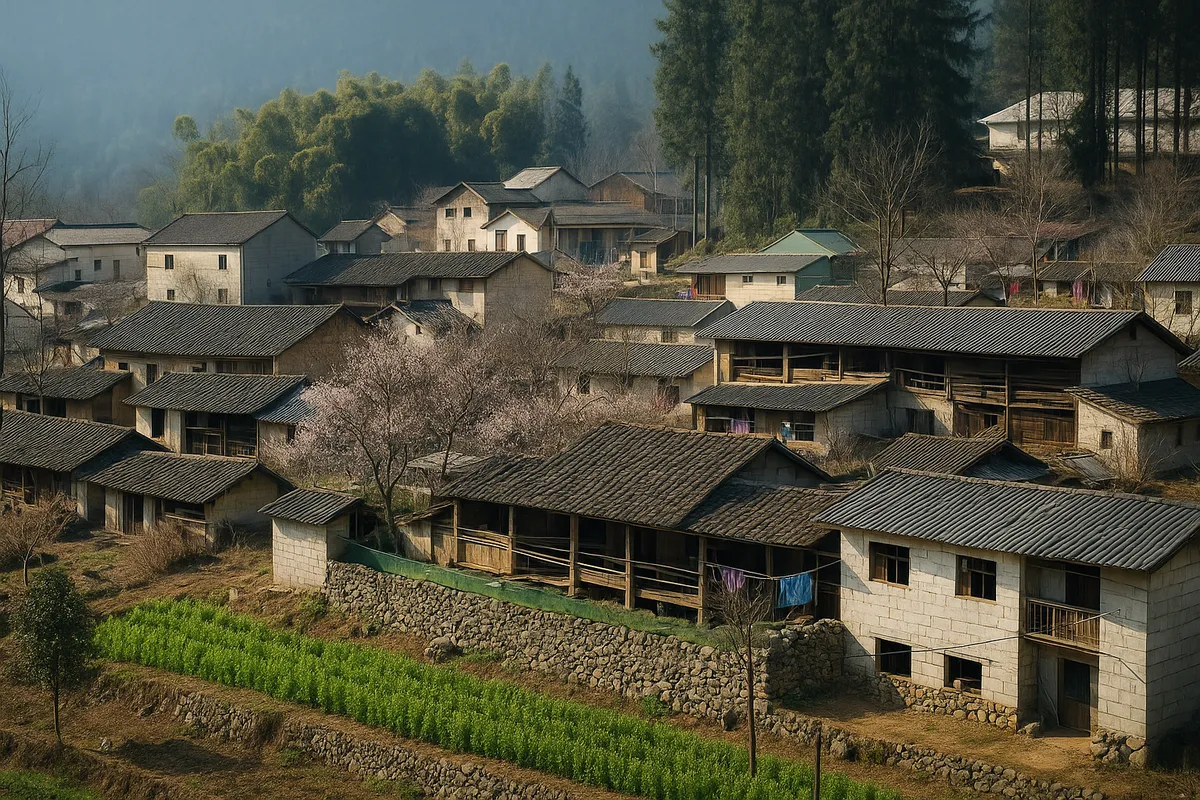Tips for surviving when lost in the wilderness
- Sunday, Jun 29, 2025, 20:41 (GMT+7)
Tips for surviving when lost in the wilderness
No one sets off on a trip with the intention of getting lost. Yet dense jungles, remote mountains and deserted trails always carry the risk of leaving travelers disoriented in the middle of nowhere. What causes most people to panic is not a lack of food or fear of wild animals, but the sudden loss of direction and not knowing what to do first.
The following insights come from real survival stories, practical experience and careful observation of people who have faced the terrifying silence of the wild and made it out alive. This is not theory, this is survival based on calm minds and smart choices.
The first thing you need to preserve is not water or food, but a clear mind. When people realize they are lost, the brain often reacts with panic, triggering irrational decisions. A solo traveler who got separated in the Ta Nang Phan Dung forest recalled how he sprinted nonstop for twenty minutes, only to realize later he had run away from his last point of contact: a burnt-out campfire. The first action should always be to stop, stay put, and observe carefully.
Next, identify the last point where you were still sure of your path or in contact with your group. Ask yourself: when was the last time I saw someone? Were there sounds of water, voices, vehicles or animals? From there, mentally draw a small circle as your search perimeter. Do not stray further unless you are confident of your direction. A survivor in the forests of Kon Tum shared that staying within proximity of his last known location increased his chances of being found.
If your phone still has battery and signal, immediately use offline navigation apps or maps downloaded in advance. Many travelers rely solely on online maps and fail to prepare for signal loss in remote areas. If possible, share your location with someone. If not, write your coordinates on paper or carve them into rocks or trees to mark your presence.
When all signal is lost, orientation relies on natural clues. The sun rises in the east and sets in the west. Moss often grows on the north side of rocks and trees. Streams usually flow toward inhabited areas. Even ant trails or birdsong can hint at nearby water sources or villages.
Managing energy becomes crucial. Do not eat unless necessary. Your body can survive days without food if it stays hydrated. Water is priority. If there is no stream, use plastic bags to collect morning dew or rain from leaves. A little-known trick is to use a clean cloth to absorb dew from leaves, then wring it into a container. Over time, every drop counts.
Shelter is the next concern. If daylight remains, find a dry, wind-sheltered spot. A rock crevice or thick bush can be enough to shield you for the night. If you have a poncho, plastic sheet or emergency blanket, use them to insulate your body. Survivors frequently report that the cold of night drains more energy than walking during the day.
Leave traces of your movement. No one will find you without signs of where you’ve been. Every few steps, break a branch, tie a cloth strip, scratch a symbol on a tree. One of the smartest techniques is stacking rocks into arrows or marking the number of days passed, helping rescuers track your path. A man once credited his survival to writing a direction on a stone: “This way to water.”
A strange but highly effective tip from forest guides is to always carry a whistle. Instead of yelling and wasting energy, use the international SOS signal: three short blasts, three long blasts, three short again. Whistles travel farther than voices in dense forests. A mirror or even a metal can lid can also reflect sunlight to signal help during the day.
If you're in a group, never split up. A common mistake is sending people in different directions to search, which causes everyone to get lost. Always stay together, leave notes at resting points with your group name, phone number, and the time you were there. Such details can drastically speed up rescue operations.
People often underestimate how unreliable electronic devices can be in emergencies. A waterproof power bank or extra battery is essential. But more importantly, use power wisely. Shut off all unnecessary apps, lower screen brightness, use battery saver mode, and avoid using the phone for anything except vital functions.
Keeping your spirits up is as vital as food or water. A young man who survived six days in the mountains said it was not food but hope that saved him. He set daily goals: build a better shelter, find cleaner water, stay mentally active. Psychological survival is often the turning point between desperation and determination. Experts say setting small goals keeps your mind focused and prevents you from making reckless decisions out of despair.
Getting lost in the wilderness is not just a risk for thrill seekers. Anyone can find themselves in that situation due to a wrong turn, a hidden trail or a weakening phone signal. But with knowledge, calmness and proper preparation, survival does not rely on luck. It relies on awareness and wisdom.
The wilderness will always be a place of beauty and danger. But being lost there does not mean being defeated. It is not the strongest who survive, but the most prepared. So before you zip your backpack for the next trip, remember to pack not only essentials, but also the mental compass to guide you through the unknown. If you ever find yourself alone in the silence of wild lands, may your calm mind and steady steps lead you home.

 CHECKIN.VN
CHECKIN.VN








Share on